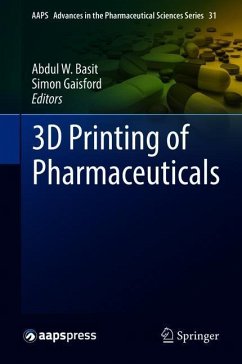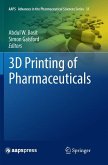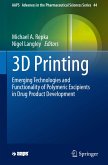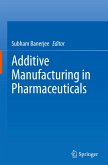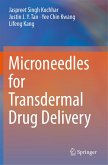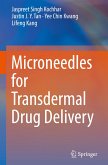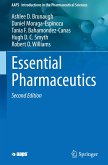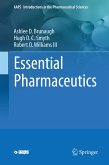3D printing is forecast to revolutionise the pharmaceutical sector, changing the face of medicine development, manufacture and use. Potential applications range from pre-clinical drug development and dosage form design through to the fabrication of functionalised implants and regenerative medicine. Within clinical pharmacy practice, printing technologies may finally lead to the concept of personalised medicines becoming a reality. This volume aims to be the definitive resource for anyone thinking of developing or using 3D printing technologies in the pharmaceutical sector, with a strong focus on the translation of printing technologies to a clinical setting. This text brings together leading experts to provide extensive information on an array of 3D printing techniques, reviewing the current printing technologies in the pharmaceutical manufacturing supply chain, in particular, highlighting the state-of-the-art applications in medicine and discussing modern drug product manufacture from a regulatory perspective. This book is a highly valuable resource for a range of demographics, including academic researchers and the pharmaceutical industry, providing a comprehensive inventory detailing the current and future applications of 3D printing in pharmaceuticals.
Abdul W. Basit is Professor of Pharmaceutics at the UCL School of Pharmacy, University College London. Abdul's research sits at the interface between pharmaceutical science and gastroenterology, forging links between basic science and clinical outcomes. He leads a large and multidisciplinary research group, and the goal of his work is to further the understanding of gastrointestinal physiology by fundamental research.So far, this knowledge has been translated into the design of new technologies and improved disease treatments, many of which are currently in late-stage clinical trials. He has published over 350 papers, book chapters and abstracts and delivered more than 250 invited research presentations. Abdul is also a serial entrepreneur and has filed 25 patents and founded 3 pharmaceutical companies (Kuecept, Intract Pharma, FabRx).
Abdul is a frequent speaker at international conferences, serves as a consultant to many pharmaceutical companies and is on the advisory boards of scientific journals, healthcare organisations and charitable bodies. He is the European Editor of the International Journal of Pharmaceutics.
Abdul was the recipient of the Young Investigator Award in Pharmaceutics and Pharmaceutical Technology from the American Association of Pharmaceutical Scientists (AAPS) and is the only non-North American scientist to receive this award. He was also the recipient of the Academy of Pharmaceutical Sciences (APS) award.
Simon Gaisford holds a Chair in Pharmaceutics and is Head of the Department of Pharmaceutics at the UCL School of Pharmacy, University College London. He has published 110 papers, 8 book chapters and 4 authored books. His research is focused on novel technologies for manufacturing medicines, particularly using ink-jet printing and 3D printing, and he is an expert in the physico-chemical characterisation of compounds and formulations with thermal methods and calorimetry.
Abdul W. Basit is Professor of Pharmaceutics at the UCL School of Pharmacy, University College London. Abdul's research sits at the interface between pharmaceutical science and gastroenterology, forging links between basic science and clinical outcomes. He leads a large and multidisciplinary research group, and the goal of his work is to further the understanding of gastrointestinal physiology by fundamental research.So far, this knowledge has been translated into the design of new technologies and improved disease treatments, many of which are currently in late-stage clinical trials. He has published over 350 papers, book chapters and abstracts and delivered more than 250 invited research presentations. Abdul is also a serial entrepreneur and has filed 25 patents and founded 3 pharmaceutical companies (Kuecept, Intract Pharma, FabRx).
Abdul is a frequent speaker at international conferences, serves as a consultant to many pharmaceutical companies and is on the advisory boards of scientific journals, healthcare organisations and charitable bodies. He is the European Editor of the International Journal of Pharmaceutics.
Abdul was the recipient of the Young Investigator Award in Pharmaceutics and Pharmaceutical Technology from the American Association of Pharmaceutical Scientists (AAPS) and is the only non-North American scientist to receive this award. He was also the recipient of the Academy of Pharmaceutical Sciences (APS) award.
Simon Gaisford holds a Chair in Pharmaceutics and is Head of the Department of Pharmaceutics at the UCL School of Pharmacy, University College London. He has published 110 papers, 8 book chapters and 4 authored books. His research is focused on novel technologies for manufacturing medicines, particularly using ink-jet printing and 3D printing, and he is an expert in the physico-chemical characterisation of compounds and formulations with thermal methods and calorimetry.

